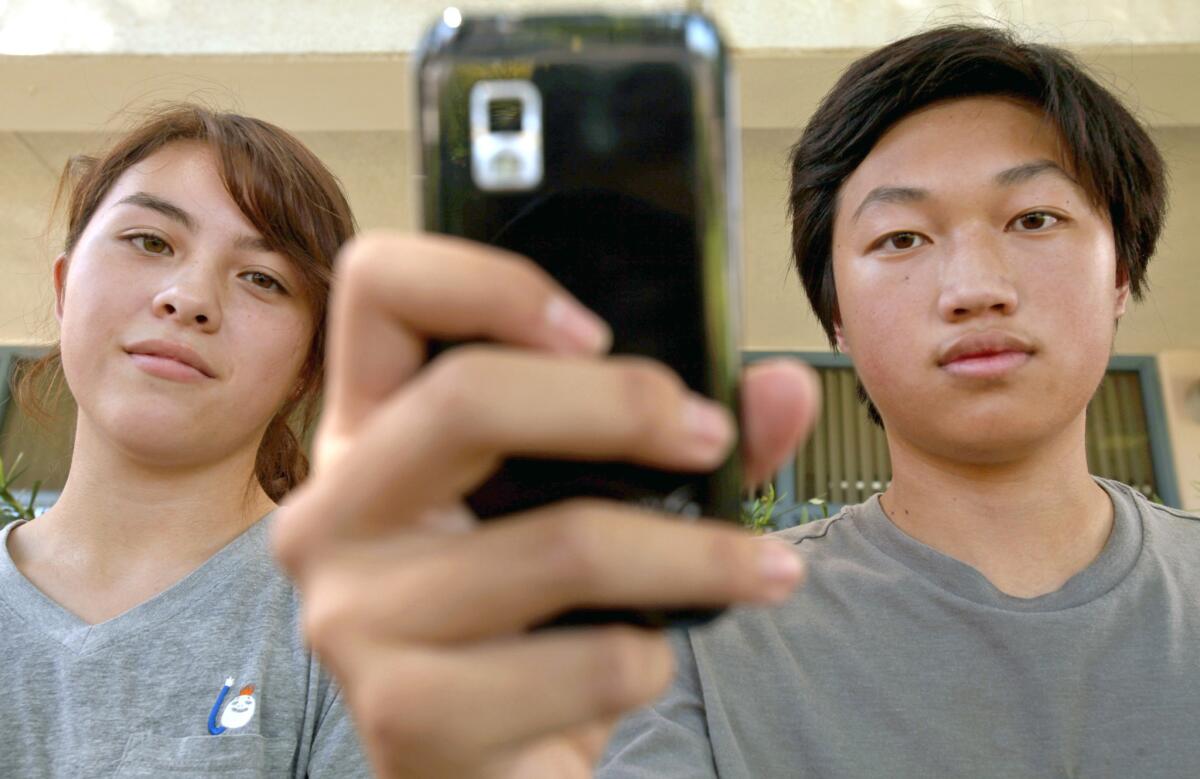Editorial: Geo Listening in the light, finally

- Share via
When it first hired Geo Listening in late 2012 to monitor the public social-media postings of students for signs of, among others, depression or suicide, Glendale school officials were less than transparent. In fact, they were opaque, failing to acknowledge it publicly in any manner.
The impetus for the pilot project, officials later told us, was the very public suicide of 15-year-old Drew Ferraro on the Crescenta Valley High campus earlier that year, as well as more general concerns about Twitter or Facebook-fueled bullying.
In August 2013, district officials put a $40,500 Geo Listening contract — one that expanded its reach to GUSD’s nine middle and high schools — on the board’s consent calendar. For those of you unfamiliar with the term, it’s the part of the agenda for items considered routine or noncontroversial — buying a month’s supply of toilet paper, say.
Clearly, this was anything but noncontroversial, and board members and administrators all but stated they were trying to hide the issue from the public. The reasoning, we were told, was that a public announcement might cause kids to mark all their accounts private, making it difficult for investigators to, well, investigate.
Such fears indicated a serious lack of sophistication regarding how social networks work. Twitter becomes effectively pointless if the settings are set to private, and Facebook’s privacy settings are so byzantine that a teen who sincerely tried to lock down his or her page would only be able to get so far.
This week, the GUSD board renewed the Geo Listening contract, doing it in public and detailing its merits. Good for them. If this system helps teachers and administrators find troubled kids and help them before they cause permanent damage to their bodies or their souls, it is well worth the money.
But we hope this is not a case of district officials bowing to public pressure in this newfound openness, but an acknowledgment of this issue always deserved to be considered — and yes, debated — in the light. It was wrong to have done otherwise, and we hope it was a lesson learned.